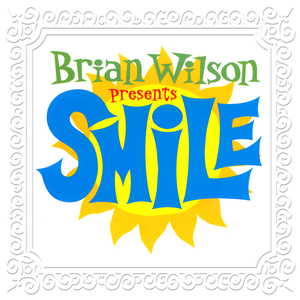Published on Nov 15, 2000
Smile started out feeling like a long-overdue exploratory
journey to me. I’d heard a fair amount about the Jayhawks before: a
smart alt-country/country-rock collective with a pair of gifted
songwriters/lead voices, one of whom (Mark Olson) left the band a
few years back. Named one of the most influential bands of the
decade by
Rolling Stone, made a “classic” album several years back
(1991’s
Hollywood Town Hall), critics’ darlings, etc. etc.
In other words, one of those bands I kept telling myself I ought
to know more about… but didn’t. I’d never heard a single
song by them before picking up this album a month ago.
The opening title tune was all it took for me to know I was in
for something special. Dreamy lyrics, densely layered male-female
harmony vocals, and rock instrumentation filled out with an
assertive string section. I could hear the “alt,” but where was the
“country”? Of course, the end result was probably just what the
band was going for in the case of rookie listeners like me: from
that point forward, I cast aside all expectations and just drank in
this remarkable album.
The Jayhawks draw deeply from influences ranging from Gram
Parsons to R.E.M. and everything in between, while managing to put
their unique stamp on every tune. They’ll drill out a
letter-perfect slice of Byrds/Tom Petty jangle-rock like “I’m Gonna
Make You Love Me,” yet imbue it with a completely unique (and in
this case, decidedly off-center) point of view. Then they’ll grab
onto a sleepy acoustic riff like the one that anchors “What Led Me
To This Town” and convince you they’re about to serve up a
straightforward country ballad, right up until the song blossoms
into its striking, hauntingly beautiful chorus.
The latter track also gives you another taste of the rich
harmonies between lead singer Gary Louris and keyboard
player/harmony vocalist Karen Grotberg (who departed for maternity
leave just prior to the album’s completion, to be replaced by Jen
Gunderman). It’s a gorgeous effect used numerous times on this
smartly arranged album, without ever coming close to wearing out
its welcome.
At this point, it seems like track four could be just about
anything. And it is… “Somewhere in Ohio” kicks off with a
simple acoustic strum and a single looping keyboard tone layered
over a techno-flavored beat. Louris croons two elusive, vaguely
threatening opening verses (“You were feeling like a bomb without a
target”)… the music slowly builds… and then the
electric guitars kick in with a stunning crunch, upping the ante a
good 50 decibels. From there, the song falls back and surges again
and again, coloring the basic rhythm track with guitars that range
from Jangle 101 to feedback-laden power chords, plus an incredibly
infectious “Ba-ba-ba-ba-ba-ba-ba-ba-ba-ba-ba” pop chorus. It’s a
little of this, a little of that, and a knockout all the way.
Playing it smart, the Jayhawks then bring it back home with the
simply stunning countrified ballad “A Break In The Clouds.” Some
actual slide guitar soars over Grotberg’s artful piano melodies as
she and Louris offer up another achingly pretty chorus-in-harmony:
“Every time that I see your face / It’s like cool, cool water
running down my back.”
It’s tempting at this point to simply end the review with “etc.,
etc.,” because the rest of the disc is equally rangy, gutsy, smart
and beautiful. Veering from airy pop (“Queen Of The World,” “Mr.
Wilson”) to melodic heavy rock (“Life Floats By,” “Pretty Thing”),
to the plaintive, enigmatic ballad “Broken Harpoon,” the Jayhawks
just keep surprising you. Double-time techno beats are paired with
distorted guitars and soaring pop choruses (“Wildest Dreams”),
sounding somehow right at home alongside Dylanesque laments
(“Better Days”).
With Olson’s departure, Louris is now the band’s principal
songwriter, but many of the best songs here are the results of his
collaborations with Grotberg, bassist Marc Perlman, and drummer Tim
O’Reagan. Perlman and O’Reagan’s influence is especially evident in
the strong rhythm tracks that characterize the whole album – a
trademark also of producer Bob Ezrin (of
The Wall fame), who clearly encouraged the band to push its
limits.
Going for the big exit – and scoring – the Jayhawks finish
Smile with the thundering, epic “Baby, Baby, Baby,” in which
Louris adopts the role of a fellow whose sudden, spectacular demise
may somehow redeem his betrayal of his lover. (Is this Shakespeare
or rock and roll??) A delicately modulated, almost tuneful wail of
feedback closes things out with panache.
What the Jayhawks have accomplished is what the best bands
strive to: use their influences as a launching point rather than a
template. There are references to Parsons/McGuinn, Buck/Stipe,
Jagger/Richards and 70s heavy metal sprinkled throughout
Smile. Yet the music and lyrics are sparklingly original
start to finish. Call it roots rock, call it “y’allternative,” call
it new traditionalist … call it whatever you want. It’s
thoroughly modern music that respects the past; carefully conceived
music that ignores boundaries; smartly imagined music that aims
high, dares much and succeeds brilliantly.
